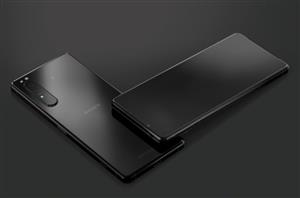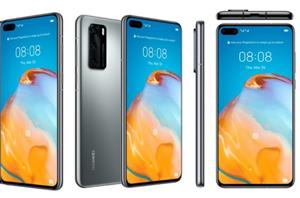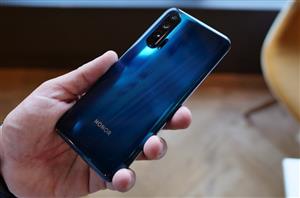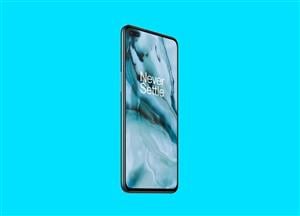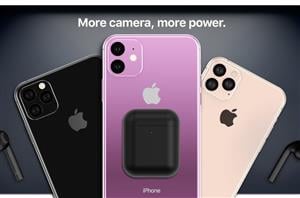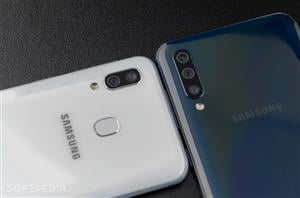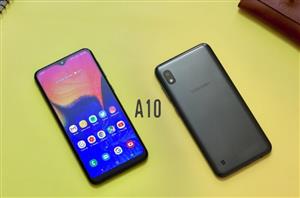Smart Assistant Wars: Siri v Alexa v Google v Cortana v Bixby
"Hey Siri, what’s the weather like?", "Alexa, turn the light on!", "Hey Google, when is my next appointment?"

Voice control is trendy and has quickly become a permanent fixture in many people's everyday lives.
The five major systems are from Amazon, Apple, Google, Microsoft and Samsung and they have different strengths and weaknesses.
Amazon Alexa

Strengths: Amazon's assistant is called Alexa, but can also be called by other names if desired. Alexa is mostly found on speakers, both Amazon's Echo devices themselves and many third-party providers. It responds to calls, which makes operation very convenient. You don't necessarily need a PC or smartphone, but Alexa does work on mobile devices.
The system is closely linked to the Amazon ecosystem and can therefore also be used for shopping if the user wants to. Third-party providers such as Spotify can be easily integrated and controlled, and skills continue to expand the range of functions.
Alexa devices come in all sizes and price ranges, so there's something for everyone. Alexa can also control almost all smart home devices, with the right speaker even without an external hub.
Weaknesses: There has been an Alexa app for the PC since November 2018, but it is hardly used. Also, it can only be activated by voice on selected devices. What would benefit the platform would be better quality management of the skills, as there are a lot more pointless apps than useful ones.
Alexa leaves a small question mark when it comes to security, just remember the story with the audio recordings that were sent to the wrong users. Special care should be taken with an offer that is so closely linked to one of the largest online shops. The Alexa app, which is needed for configuration, is also quite poor and can be confusing.
Apple Siri

Strengths: Apple was one of the first providers of voice control with Siri, and this experience is particularly noticeable in the quality of the language. Siri usually recognises spoken commands without errors and answers quite naturally.
The dictation function in particular, which has been integrated into all Apple platforms across all systems, benefits from this feature. With the help of HomeKit, Siri is also very suitable for controlling the most important smart home brands.
Weaknesses: Siri is from Apple and is therefore only available to a closed group of customers - no Apple device, no Siri. Above all, Apple is missing out on speakers with voice control, which is very popular with customers, because only Apple fans will buy the rather expensive Homepod.
Siri lags against Google Assistant, but also Alexa in terms of functions and answers. The Apple assistant much more often simply refers to a web search because she does not understand the content of the question or does not support the desired function.
Devices that are readily available with Siri: All Apple iPhones from iPhone 6 onwards, Apple Mac PCs & Laptops, Homepod and iPad with iOS 8 or later.
Latest iPhone Deals
Google Assistant

Strengths: The Google Assistant has an enormous range thanks to the spread of Android because it is preinstalled on virtually all current Android smartphones and tablets.
He responds quickly and, ideally, he can access contacts, appointments, search history and everything else that Google knows, so he can deliver extremely accurate and personally tailored results.
The Google Assistant is also capable of smart home connectivity, even via an Android smartwatch. The assistant comes into the living room through the Google Home speakers and third-party devices.
Weaknesses: Google and data protection, that's also a thing with the Assistant. The assistant only works really well if it knows as much as possible about you - not every user likes that, and that's totally understandable.
It would be good if Google created better options for protecting privacy. For example, by sharing different levels of data with the Assistant. Like Alexa, Google also leaves out the area of computers; the Assistant does not exist here.
Devices that are readily available with Google Assistant: Google Pixel series, LG devices and any handset running Android 6.0 or above.
Latest Google Pixel Deals
Microsoft Cortana

Strengths: Cortana, Microsoft's voice assistant, is particularly good at two things: speaking and understanding. Text comprehension and speech quality are very good with Cortana compared to the competition.
The assistant, which is pre-installed on every current Windows computer. Cortana can be operated not only via the spoken word but also via text input; the corresponding field in Windows can be found in the lower-left corner next to the icon for the start menu.
Weaknesses: The spread of Cortana outside of Windows computers is weak. There is only one speaker with the system and its popularity is very limited.
Many users switch off Cortana on the PC, partly because there is often no microphone on the classic desktop. Cortana also lacks the important dictation function, which saves the user the hassle of typing.
Skills like Alexa or constantly new functions like the Google Assistant are also lacking with Cortana. The fact that Microsoft makes its own Android launcher a condition to network its smartphone more closely with the PC also ensures that Cortana hardly played a role in smartphones - the assistant is already there and the hurdles for Cortana are too high.
Cortana was pulled from all smartphones in January 2020 as it was being overrun by iOS and Android assistants.
Samsung Bixby

Strengths: Bixby from Samsung was specially created to network the many different Samsung devices and work across platforms. The foundation for this is in place and Bixby is just getting more useful. The own Bixby button on Samsung smartphones ensures that the assistant is always ready when you need it.
Weaknesses: Similar to Siri, Bixby is a pure island solution, because the assistant only works on Samsung devices. So if you don't have a Galaxy smartphone or other supported device, you won’t be able to experience Bixby.
As for Bixby speakers, there is only one that Samsung has presented named Galaxy Home, but it is not yet on the market.
Also, the development of Bixby has been extremely slow until now, it took years for the system to learn other languages from English. New functions also take a while before Samsung releases them.
Devices that are readily available with Bixby: All Samsung Galaxy Devices from the Galaxy S8 Series onwards.
Latest Samsung Galaxy Deals
- Amazon Alexa
- Apple Siri
- Latest iPhone Deals
- Google Assistant
- Latest Google Pixel Deals
- Microsoft Cortana
- Samsung Bixby
- Latest Samsung Galaxy Deals
Voice Assistant Strengths & Weaknesses
Voice Assistant FAQs
Which is the best Voice Assistant?
Depending on where and how you wish to use your virtual assistant will depend on the recomendation.
If you wish to use voice control around the house then we would recommend Alexa as she is smart and works with most smart devices like plugs, and appliances.
If you wish to have your assistant on your phone then we suggest Google Assistant as this can be used mobile and in the home via Google Nest.
Can Google talk to Siri?
In 2018 Google launched a shortcut that allows you talk to Google Assistant through Siri on your iPhone. To activate this say "Hey Siri, OK Google"
Is Cortana finished?
Cortana is no longer available on any smartphone or home device. It is only available on Windows laptops. Without saying it we think Microsoft is slowly phasing out Cortana.



